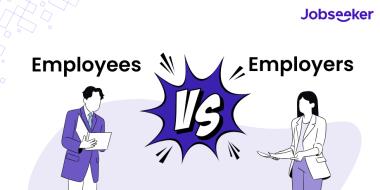The AI Job Search Revolution: Over 90% of US Jobseekers Find AI Useful in Their Job Search
Imagine applying for your dream job but your toughest competition is powered by AI. Welcome to the 2025 job market, where more than 90% of US jobseekers rely on artificial intelligence to get ahead of the crowds. From crafting standout resumes to landing interviews, AI tools have rapidly become essential. Dive into this revolutionary shift to learn how you can leverage AI to land your next opportunity.
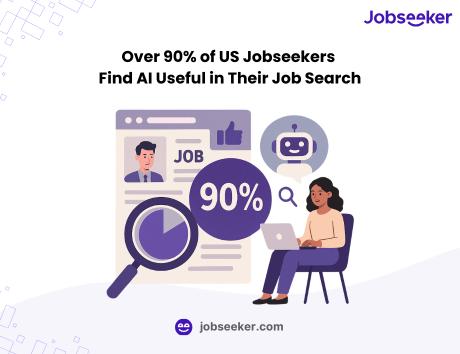
With so many areas of life now harnessing the power of AI, it makes perfect sense for the job search and hiring processes to follow suit. A growing number of AI-powered apps and tools are transforming the way we apply for jobs, with around 40% of jobseekers using AI to improve their chances of success.
So, where do jobseekers stand in the age of AI? Is it a valuable tool to assist with job applications, or is there a risk that AI becomes too critical to the hiring process, leaving some candidates behind? Let’s take a look at the key trends and attitudes towards AI’s role in the hiring process in 2025.
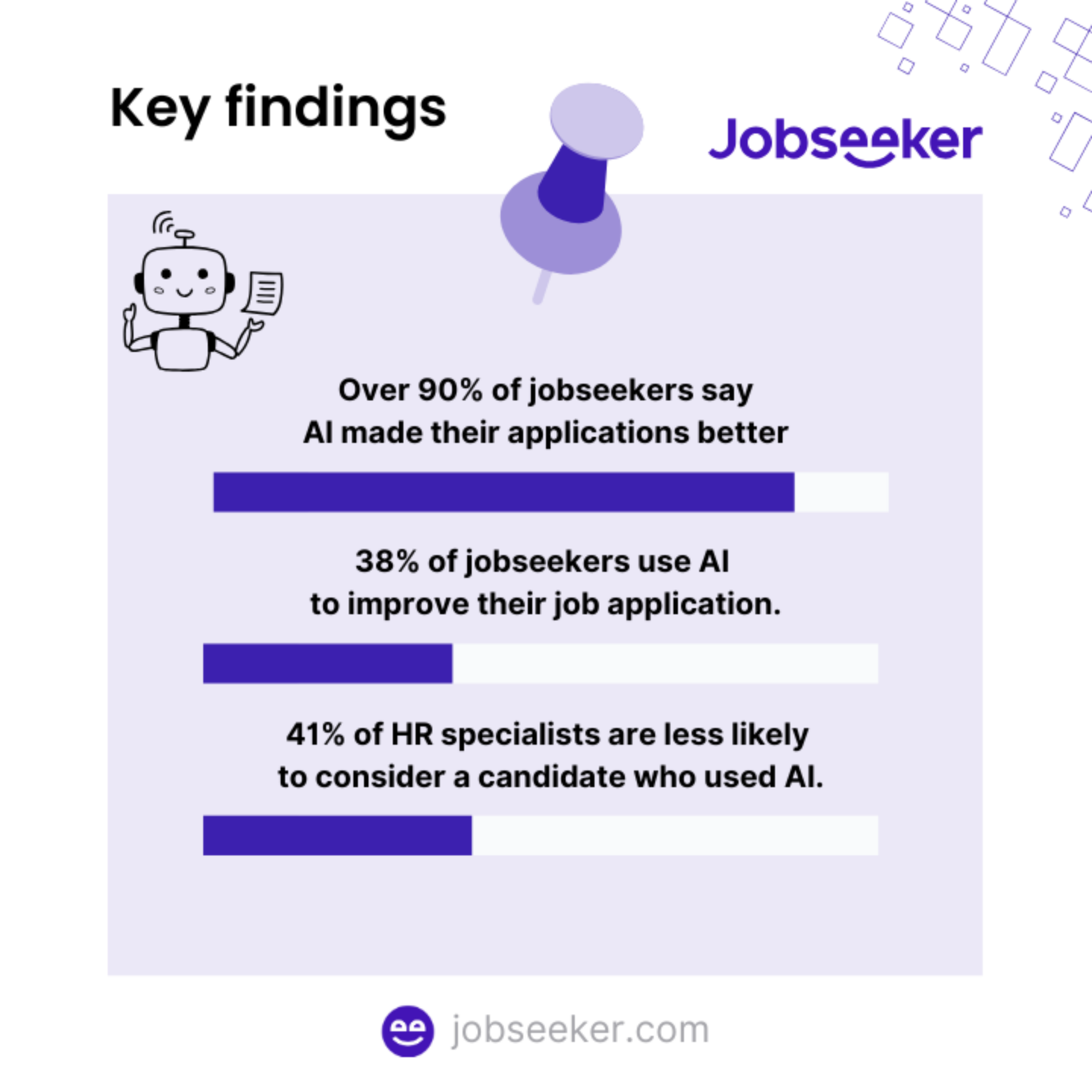
Research Background
Jobseeker surveyed more than 2,000 US employees in three separate online surveys across 2025. Respondents represented various industries, seniority levels and employment statuses, exploring jobseekers’ use of AI during the job search process, including the use of AI for resume and cover letter writing. The studies also examined attitudes towards AI in the workplace, including AI-driven hiring and the pressure to develop AI skills.
How Jobseekers Are Using AI to Get Hired
Research from Jobseeker shows US workers are becoming increasingly confident using AI in their job search activities. A total of 40% of people surveyed mentioned they’d used AI in their job application process, indicating that AI tools are becoming more acceptable to jobseekers. The growing confidence of candidates using AI for their applications also suggests its use is slowly becoming more acceptable to employers.
What are jobseekers using AI for in their job applications?
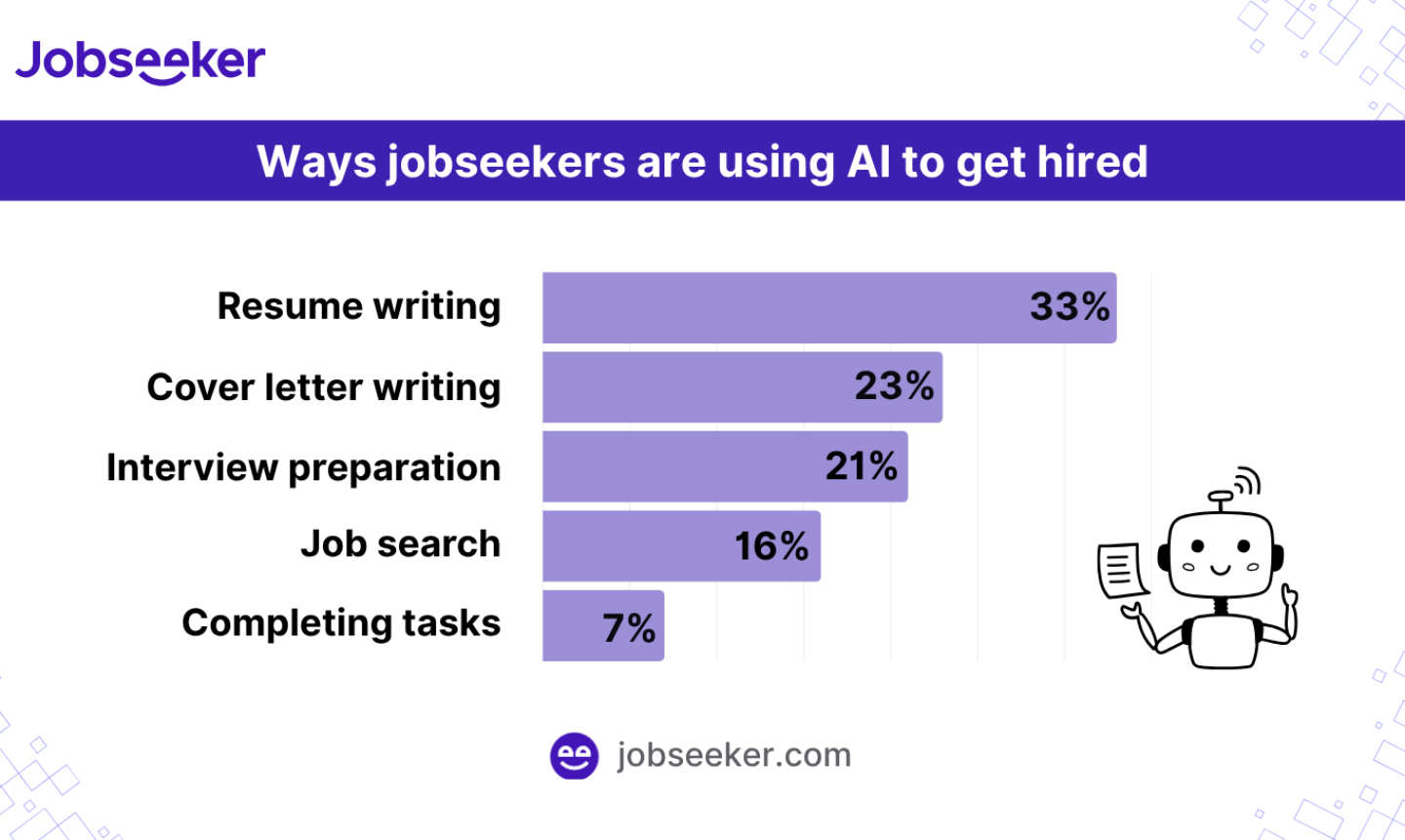
Of the workers using AI in their job applications, there’s a varied spread of different uses:
- A third (33%) of those using AI to assist their job applications used it for resume writing tasks.
- Around a quarter (23%) of users utilized AI to support them in writing their cover letter.
- More than one in five jobseekers used AI interview preparation tools (21%).
- 16% of AI-using jobseekers used it to search for job opportunities.
- Less than one in 10% of jobseekers used AI to assist with organizing and managing their job search process, with just 7% stating they used it to ‘complete tasks’.
The variation in uses of AI to assist the job search process is indicative of the depth and breadth of tools available to jobseekers. No single AI-assisted task dominates the job search process, indicating that jobseekers are comfortable picking and choosing their AI tools depending on what they most need assistance with.
Which tools are jobseekers turning to?
The growing suite of AI apps and tools designed to assist job search activities provides a wealth of possibilities for jobseekers. Whether using a dedicated AI job app or an AI chatbot to assist with specific job search-related activities, jobseekers have full control over how they use AI to improve their applications.
When asked which tools they plan to use in 2025, workers were most likely to turn to the most well-known AI assistants:
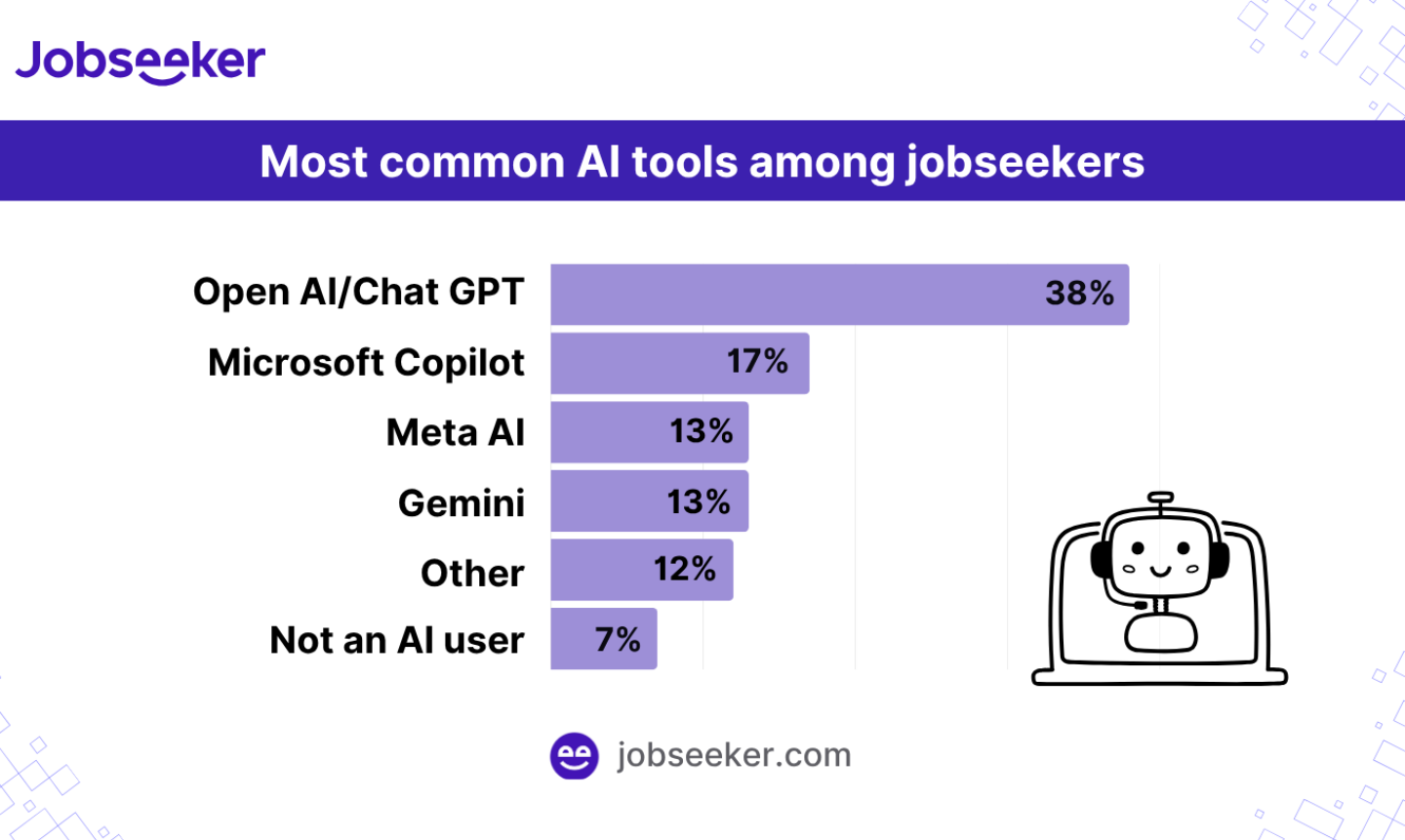
- OpenAI/ChatGPT was cited by 38% of all survey respondents, with an almost equal distribution across different generations.
- Microsoft Copilot was the second-most mentioned AI tool, with 17% of respondents saying they plan to use it.
- Gen Z was far more likely than other generations to use Microsoft Copilot, with 30% of the younger generation planning to use it.
- Meta AI (Facebook) and Gemini (Google) were both mentioned by 13% of respondents, with Gemini being less popular with Gen Z (only 4%).
- Only 7% planned not to use any AI tools in the coming year, though this increased significantly with age. Just 3% of Gen Z expected to avoid AI altogether, though this rose to 4% for Millennials, 13% for Gen X and 27% for Boomers.
Do jobseekers find AI job search tools useful?
When asked if they found AI job search tools helpful in improving their job application process, an overwhelming majority of US workers said yes:
- More than 90% of all users of AI tools found them helpful for their job search (42% of respondents said AI tools were ‘very helpful’ (5 out of 5), with a further 48% rating them 4 out of 5 for helpfulness).
- Not a single survey respondent rated AI job search tools ‘not at all helpful’ (1 out of 5). Just 2% rated them 2 out of 5.
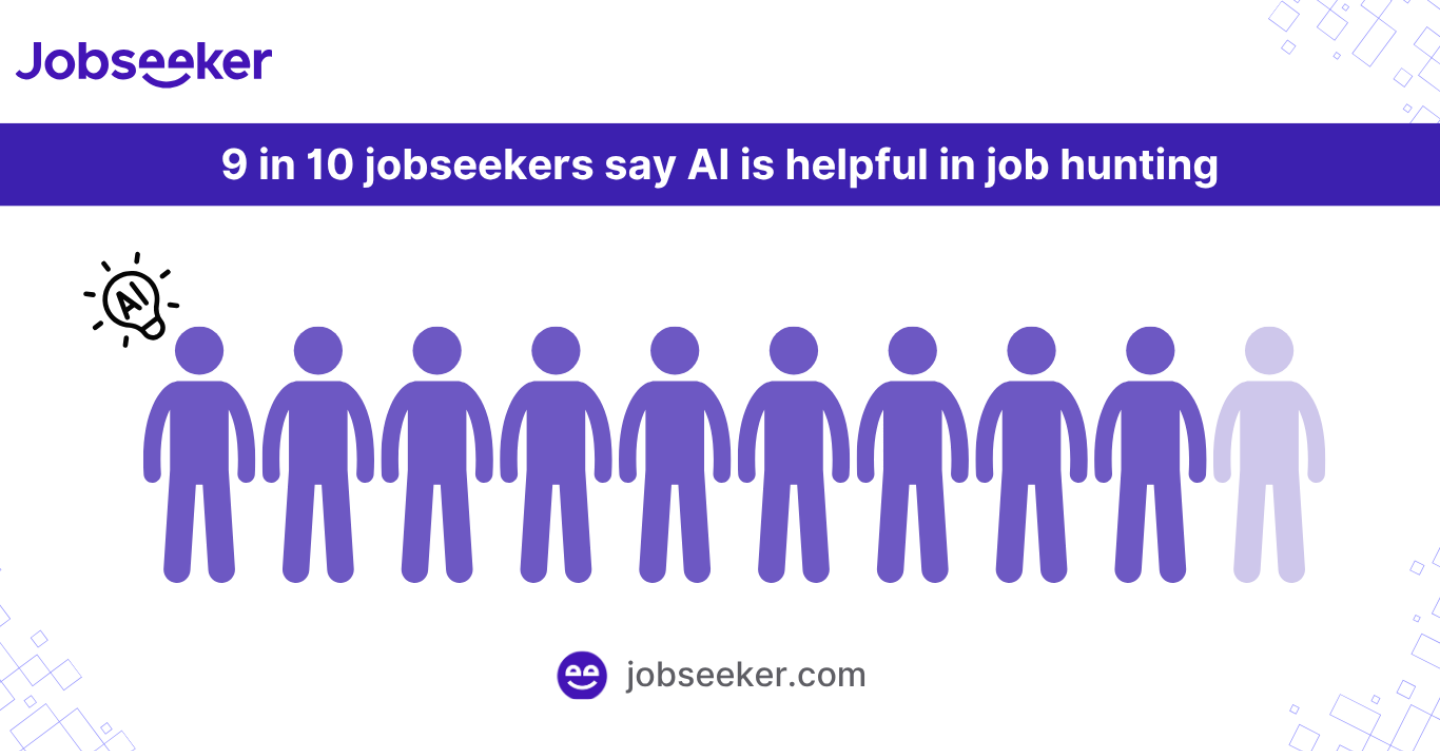
So, it appears that when they’re willing to give AI tools a try, most people find them valuable in assisting with their job applications. Jobseekers also generally disagree with the notion that using AI tools gives them an unfair advantage over candidates who don’t use them:
- Only 16% of respondents believed AI tools give applicants an unfair advantage.
- Almost three-quarters of respondents (74%) don’t believe AI usage in job applications is unfair.
Perhaps the free availability and abundance of AI tools, and their relative ease of use, help jobseekers see them as a discretionary, inclusive tool that all jobseekers can use to their advantage if they so wish.
How are employers reacting to AI job applications?
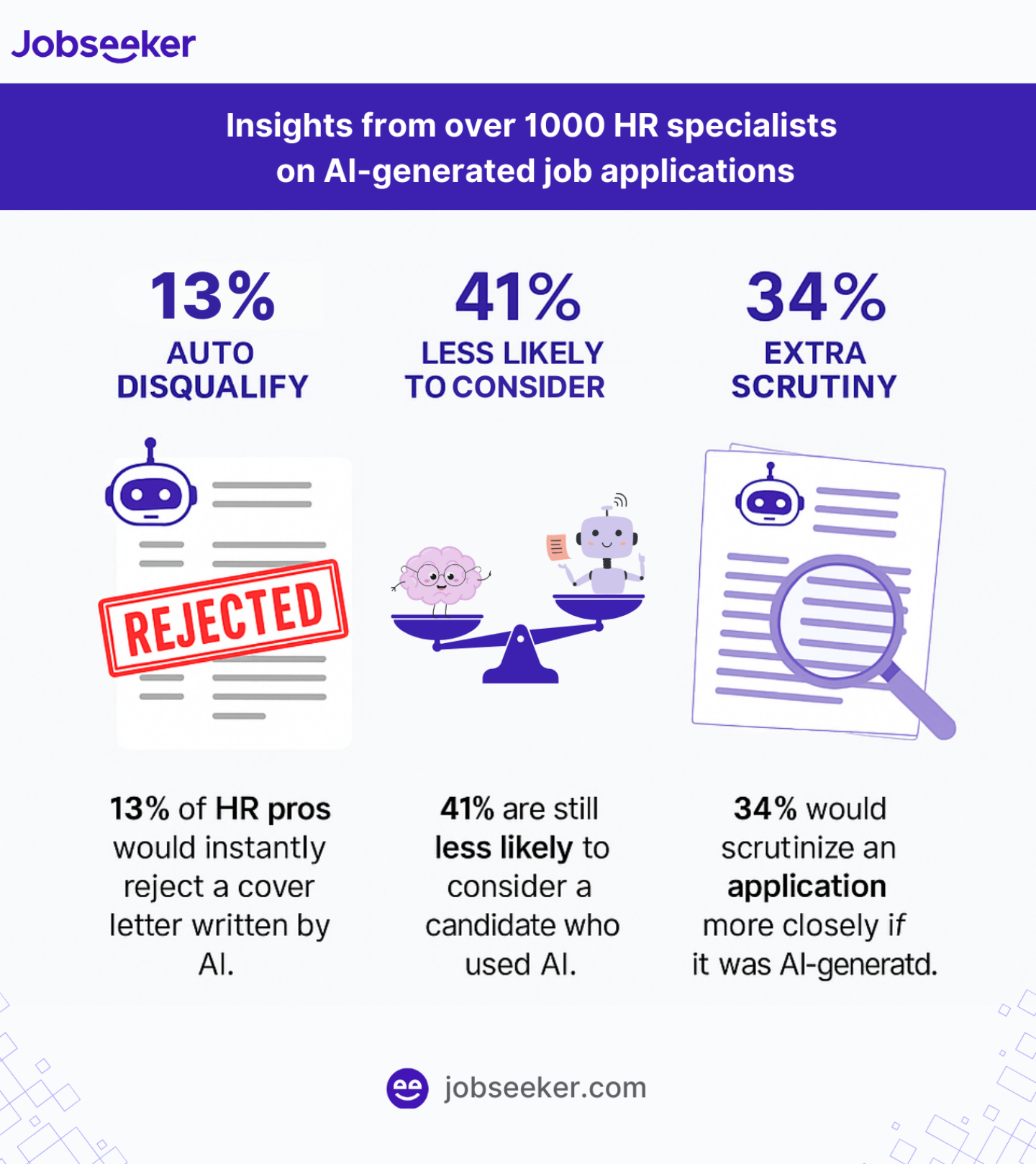
Attitudes towards AI are clearly changing fast, with its use becoming more acceptable in various aspects of everyday life. This also appears to be true for employers and their attitudes towards candidates using AI in their applications. The days of employers flat-out refusing AI-assisted job applications are almost gone, though a healthy skepticism remains:
- Just 13% of HR specialists immediately disqualify a candidate if they’ve used AI to generate a cover letter.
- However, 4 in 10 HR specialists (41%) are still less likely to consider a candidate who used AI.
- More than a third of HR specialists (34%) would scrutinize an application more closely if it was AI-generated.
This suggests that, while the use of AI is no longer a major red flag for most employers, the pressure is on applicants who use AI to genuinely enhance their applications. Using AI to generate an application, including a resume or cover letter, in its entirety is unlikely to be fruitful owing to the increased scrutiny from employers. However, careful and considered use of AI to enhance applications, while retaining an authentic, personal voice, can still be beneficial for candidates.
Jobseekers Under Pressure: The Growing Burden to Learn AI
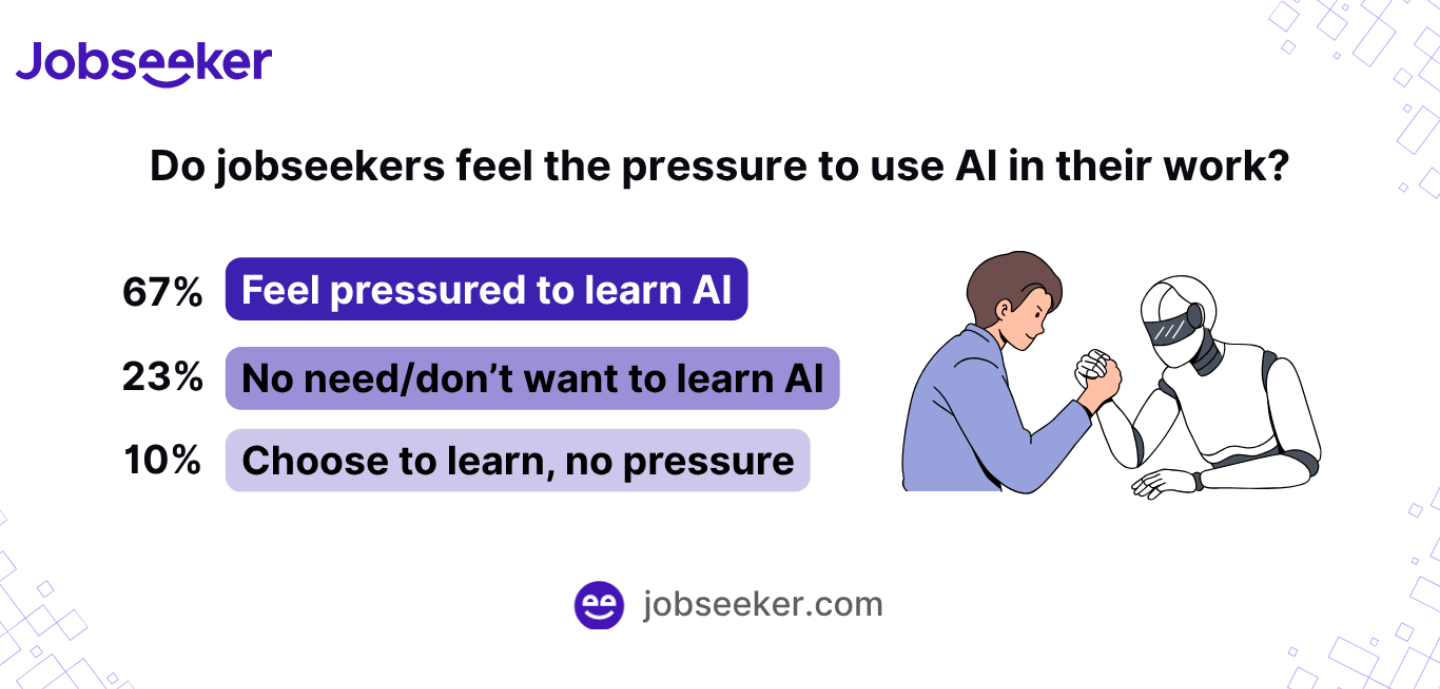
While using AI in the workplace is optional for most people, a significant proportion of US workers feel pressured to integrate it into their work. This is particularly true for younger workers:
- Two-thirds of US workers (67%) feel they “have to learn how to integrate AI” into their work or risk falling behind.
- 1 in 10 US workers (10%) don’t feel pressure to add AI skills, but choose to do it anyway.
- Only 23% of US workers don’t want or need to integrate AI into their work.
- Three-quarters of employees (75%) feel they “need to learn new skills” because of AI.
- Younger workers are far more likely to feel the pressure to learn AI skills (70% of 18 to 27 year-olds, 73% of 28 to 43 year-olds.
- Older workers are more likely to feel no pressure to add AI skills, with 60% of those aged 60+ feeling it’s unnecessary for their work.
The possible reasons for the age differences in feelings of pressure around AI skills are many. Younger workers might be more likely to work in industries and roles where AI is more integral. Older workers might be more senior, and therefore less likely to need to use AI to automate administrative tasks and other repetitive actions. On the other hand, younger workers in more junior positions might feel their job is increasingly at risk of automation by AI, increasing the pressure to learn new skills.
Whatever the reasons for feeling the pressure to add AI skills, it’s clear that there is genuine concern among many parts of the workforce. Indeed, we might expect this pressure to increase as AI becomes a more integral part of working life.
Jobseekers’ Attitudes to AI Hiring
The AI revolution is not only transforming the way people apply for jobs, it’s also assisting employers in the management of the recruitment process. Jobseeker’s research suggests 31% of companies are now using AI to help screen and filter resumes. This process can help save valuable HR and recruitment resources at a time when workers are changing jobs more frequently than ever (1).
US jobseekers seem mostly to be comfortable with the idea of AI hiring practices:
- Two-thirds of US employees (67%) are comfortable with the idea of AI hiring (rating a 4 or 5 out of 5 in ‘comfort level’).
- Only 18% of US workers are uncomfortable with the idea of AI being used to screen their job applications.
- Men are far more likely than women to be comfortable with AI recruitment processes (74% of men vs. 58% of women).
The level of acceptance most workers feel towards AI involvement in hiring decisions reflects a growing trend towards recognizing the value and contribution of AI in everyday life. AI tools can review resumes objectively according to set criteria, and have the potential to overcome recruitment biases. This potentially means AI usage by employers can lead to a fairer assessment of candidates than humans could manage alone.
Key Takeaways: Adapt or Fall Behind? What Jobseekers Can Do Today
AI can be either a help or a hindrance to your job applications. Which one applies to you depends on how you use it. For those willing to embrace AI in their job applications and use it in a smart, considered way, there are potentially significant benefits. On the other hand, those who fail to adapt could see themselves falling behind in the running for new jobs, or in their current role. However, AI is here to stay as part of the modern employment and recruitment experience, and, if approached smartly, it can complement your efforts, rather than conflict with them.
AI assistants can evaluate your resume against a job description, draw out the most powerful keywords from a job advert, or help you refine your applications for maximum impact. These tips can help you to integrate AI into your job search activities to enhance your chances of success:
1. Know how and when to call on specific AI job search apps
Knowing when to use general AI assistants and specific job search AI apps can make all the difference to your applications.
AI assistants can be useful for evaluating your resume against a job description, drawing out the most powerful keywords from a job advert, or helping you refine your applications for maximum impact.
On the other hand, apps such as Jobseeker can go further, helping you design an eye-catching resume with a professional layout, while tweaking the content of your application with AI-assisted suggestions based on your target job title. Interview preparation apps can also help you prepare for a job interview, providing realistic practice interview scenarios and assessing your performance, suggesting ways to improve.
2. Use AI to grow your skill set
In addition to creating impactful job applications, AI tools can make you more employable by helping you add valuable new skills. Use AI assistants and AI-powered training platforms for professional development, either in work or in your leisure time.
3. Treat AI as complementary to your own work, not in place of it
While AI usage can increase your efficiency and improve the quality of your output, both in the workplace and in your job applications, it’s no substitute for your own work. Always use your own work as the basis for any job application, and use AI tools where necessary to tweak, edit and enhance your output. This way, your applications will retain an authentic, personal touch.
4. Approach AI usage with an ethical mindset
However much you incorporate AI into your work, it’s important to retain an ethical mindset. This means never using AI to embellish your credentials or create false or misleading work experience, achievements or skills. It also means being mindful of employers’ preferences around AI use in job applications, and refraining from using it if the job advert explicitly states that it’s forbidden.
Sources:
Research and Analysis: Reyhane Mansouri
Written by: Mike Potter
Impress potential employers with your resume
Follow step-by-step professional guidance to create a polished resume in minutes.


